In science and history, consilience is the principle that evidence from independent, unrelated sources can "converge" on strong conclusions. That is, when multiple sources of evidence are in agreement, the conclusion can be very strong even when none of the individual sources of evidence is significantly so on its own. Most established scientific knowledge is supported by a convergence of evidence: if not, the evidence is comparatively weak, and there will probably not be a strong scientific consensus.

Edward Osborne WilsonForMemRS was an American biologist, naturalist, ecologist, and entomologist known for developing the field of sociobiology.
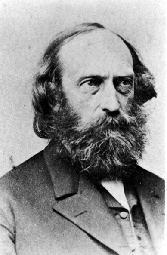
Stephen Pearl Andrews was an American libertarian socialist, individualist anarchist, linguist, political philosopher, outspoken abolitionist and author of several books on the labor movement and individualist anarchism.
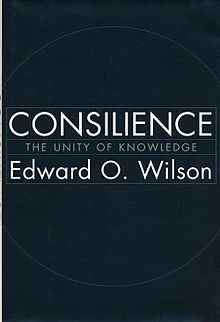
Consilience: The Unity of Knowledge is a 1998 book by the biologist E. O. Wilson, in which the author discusses methods that have been used to unite the sciences and might in the future unite them with the humanities.
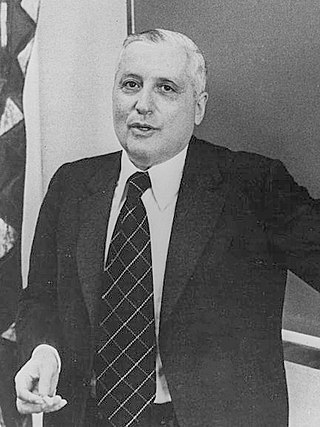
Viscount Ilya Romanovich Prigogine was a Belgian physical chemist of Russian-Jewish origin, noted for his work on dissipative structures, complex systems, and irreversibility.
A holon is something that is simultaneously a whole in and of itself, as well as a part of a larger whole. In other words, holons can be understood as the constituent part–wholes of a hierarchy. Holons are sometimes discussed in the context of self-organizing holarchic open (SOHO) systems.
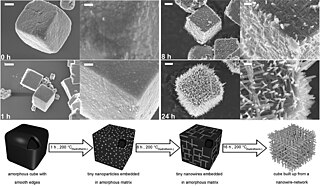
Self-organization, also called spontaneous order in the social sciences, is a process where some form of overall order arises from local interactions between parts of an initially disordered system. The process can be spontaneous when sufficient energy is available, not needing control by any external agent. It is often triggered by seemingly random fluctuations, amplified by positive feedback. The resulting organization is wholly decentralized, distributed over all the components of the system. As such, the organization is typically robust and able to survive or self-repair substantial perturbation. Chaos theory discusses self-organization in terms of islands of predictability in a sea of chaotic unpredictability.
In most contexts, the concept of good denotes the conduct that should be preferred when posed with a choice between possible actions. Good is generally considered to be the opposite of evil and is of ethics, morality, philosophy, and religion. The specific meaning and etymology of the term and its associated translations among ancient and contemporary languages show substantial variation in its inflection and meaning, depending on circumstances of place and history, or of philosophical or religious context.

"The Two Cultures" is the first part of an influential 1959 Rede Lecture by British scientist and novelist C. P. Snow which were published in book form as The Two Cultures and the Scientific Revolution the same year. Its thesis was that science and the humanities which represented "the intellectual life of the whole of western society" had become split into "two cultures" and that this division was a major handicap to both in solving the world's problems.
Indeterminism is the idea that events are not caused, or are not caused deterministically.
Eric J. Lerner is an American popular science writer and independent plasma researcher. He wrote the 1991 book The Big Bang Never Happened, which advocates Hannes Alfvén's plasma cosmology instead of the Big Bang theory. He is founder, president, and chief scientist of Lawrenceville Plasma Physics, Inc. now known as LPPFusion.
Psychometry, also known as token-object reading, or psychoscopy, is a form of extrasensory perception characterized by the claimed ability to glean accurate knowledge of an object's history by making physical contact with that object. Supporters assert that an object may have an energy field that transfers knowledge regarding that object's history.
Holism in science, holistic science, or methodological holism is an approach to research that emphasizes the study of complex systems. Systems are approached as coherent wholes whose component parts are best understood in context and in relation to both each other and to the whole. Holism typically stands in contrast with reductionism, which describes systems by dividing them into smaller components in order to understand them through their elemental properties.

The Apollonian and the Dionysian are philosophical and literary concepts represented by a duality between the figures of Apollo and Dionysus from Greek mythology. Its popularization is widely attributed to the work The Birth of Tragedy by Friedrich Nietzsche, though the terms had already been in use prior to this, such as in the writings of poet Friedrich Hölderlin, historian Johann Joachim Winckelmann, and others. The word Dionysian occurs as early as 1608 in Edward Topsell's zoological treatise The History of Serpents. The concept has since been widely invoked and discussed within Western philosophy and literature.

The tree of knowledge (ToK) system is a new map of Big History that traces cosmic evolution across four different planes of existence, identified as Matter, Life, Mind and Culture that are mapped respectively by the physical, biological, psychological and social domains of science. The Tree of Knowledge (ToK) System was developed by Gregg Henriques, who is a professor and core faculty member in the Combined-Integrated Doctoral Program in Clinical and School Psychology at James Madison University. The ToK System is part of a larger Unified Theory of Knowledge that Henriques describes as a consilient scientific humanistic philosophy for the 21st Century.

Isabelle Stengers is a Belgian philosopher, noted for her work in the philosophy of science. Trained as a chemist, she has collaborated with Russian-Belgian chemist Ilya Prigogine and French philosopher/sociologist Bruno Latour among others, and has written widely on the history of science as well as philosophers such as Gilles Deleuze, Alfred North Whitehead, Donna Haraway, and Michel Serres.
In The Tree of Knowledge (1987:47), Humberto Maturana and Francisco Varela set out a way of describing the nature of living things: “… [An] organization denotes those relations that must exist among components of a system for it to be a member of a specific class. Structure denotes the components and relations that actually constitute a particular unity [or thing]…” While Maturana and Varela (1987:28) do not pursue a specific discussion about process, they set out to understand the role of cognition as “… the universal nature of doing”. Maturana and Varela are seeking to understand what they term autopoiesis, how living things self–produce. Maturana and Varela (1987:47) claim: “… by realizing what characterizes living beings in their autopoietic organization, we can unify a whole lot of empirical data about their biochemistry and cellular functioning”.
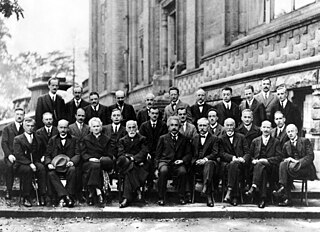
A golden age of physics appears to have been delineated for certain periods of progress in the physics sciences, and this includes the previous and current developments of cosmology and astronomy. Each "golden age" introduces significant advancements in theoretical and experimental methods. Discernible time periods marking a "golden age" of advancements are, for example, the development of mechanics under Galileo (1564–1642) and Isaac Newton (1642–1727). Another small epoch seen as a golden age is the unification of electricity, magnetism, and optics because of 19th century notables, including Michael Faraday, James Clerk Maxwell, and others.

In physics, time is defined by its measurement: time is what a clock reads. In classical, non-relativistic physics, it is a scalar quantity and, like length, mass, and charge, is usually described as a fundamental quantity. Time can be combined mathematically with other physical quantities to derive other concepts such as motion, kinetic energy and time-dependent fields. Timekeeping is a complex of technological and scientific issues, and part of the foundation of recordkeeping.

What is Philosophy? is a 1991 book by the philosopher Gilles Deleuze and the psychoanalyst Félix Guattari. The two had met shortly after May 1968 when they were in their forties and collaborated most notably on Capitalism & Schizophrenia and Kafka: Towards a Minority Literature (1975). In this, the last book they co-signed, philosophy, science, and art are treated as three modes of thought.











